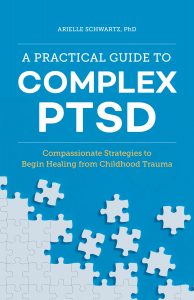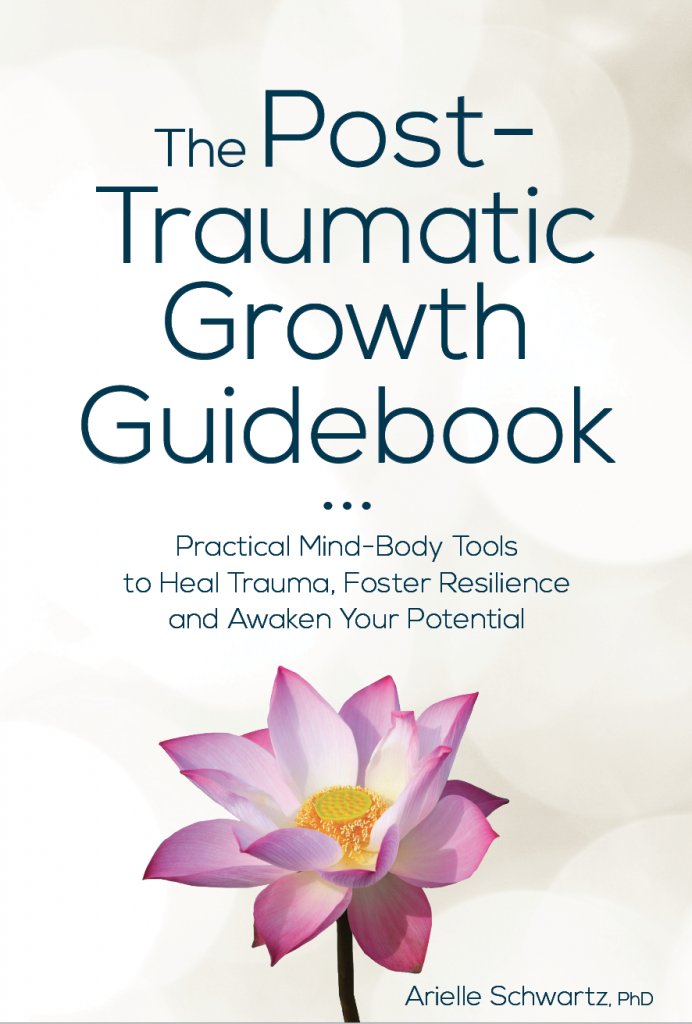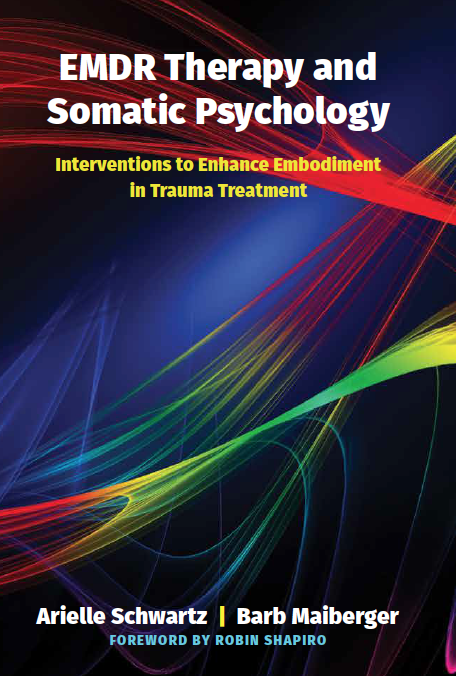An Intention of Kindness

The pain of unresolved relational trauma from childhood often presents as self-critical thoughts, feeling intolerant of our mistakes, or engaging in self-harming behaviors. Self-compassion as applied to trauma recovery allows us to transform our pain. The word compassion literally means to “feel moved by” or “feel with” another person’s experience. Usually, compassion arises in response to another person’s suffering and evokes a desire to understand their pain and be of service by offering help or kindness. This same intention of warmth and caring can be offered to ourselves in the form of self-compassion. Here, we set an intention to respond to our own suffering with warmth and gentleness.
Trauma recovery involvesdeveloping positive coping resources and focusing your attention on your strengths. Healing also asks you to attend to difficult memories from your past and your emotional pain. Self-compassion helps to support both of these intentions.
“Self-compassion involves two key actions. First, we must set limits with ourselves to reduce habitual negative thoughts and behaviors that perpetuate harm. Second, we must repeatedly practice new kind and loving thoughts and behaviors. Self-compassion becomes easier and more accessible when we revisit this practice on a regular basis.”
Dr. Arielle Schwartz
Self-Compassion and the Inner Child

In order to heal from childhood trauma, it is important to acknowledge the pain that you felt as a child. When you engage a loving attitude toward this young part of you, you are evoking the same positive emotions that get generated in loving relationships between caring adults and young children. Even if you didn’t have a loving parent or caregiver, you can now create a reparative experience which can help you to find a sense of resolution within yourself.
If you felt alone or neglected as a child, you can imagine your now, “adult self” holding that young or “child part” of you. If you felt afraid or threatened then a reparative process might involve your “adult self” protecting your young self. If you were being abused or violated, a reparative experience might involve imaging your “adult self” rescuing your young self by leaving the dangerous environment. And, for times in which you felt humiliated and ashamed, a reparative process involves offering profound acceptance and loving kindness for the hurt feelings held by the young you.
Barriers to Compassion

There may be times that you have difficulty feeling compassion toward a younger part of yourself. Instead you might notice that you feel resentful or aggressive toward this part of you. This often occurs because we internalize our experiences of the family members that we grew up with. For example, if you had a critical parent, this can become the voice of your own inner critic. Or, if you felt abandoned as a child, you might continue to neglect your own self-care needs now. You might feel that this young part of you is unlovable or you might blame the young part of yourself for causing abuse.You might find yourself feeling an imbalance of loving emotions toward your abuser while simultaneously carrying shame and self-blame towards yourself. These are signs that you carry a distorted sense of self-responsibility for the abuse.
In part, this occurs because it is common for children to believe that the abuse or neglect is their fault. They blame themselves because it can be too frightening or inconceivable for a child to confront that they have a threatening parent or caregiver. A child is completely dependent upon caregivers. Their very survival requires that they make a dangerous environment tolerable; even if this is accomplished by fantasy alone.
According to Dr. Judith Herman, trauma expert and author, healing from the over-identification with an abuser involves a grief process as you confront the painful dynamics of your family of origin. However, as you let go of your childhood longing to be taken care of, you can simultaneously increase a sense of self-responsibility for your life now. This allows you to identify your values and strengthen your boundaries. When you are aware of what is important to you, you can better stand up for your needs and focus on fulfilling your life goals.
Self-Compassion in Practice

Take some time and explore this practice of self-compassion. Begin this practice by imagining a specific event from your childhood that continues to feel painful to you. Take some time to visualize this event and imagine how you felt as a child. If you were to look at a photograph from this time, what would you see in your face? What else might you notice? Now, take the time to reflect upon the missing experience. What was it that you most needed as a child? What do you imagine this young you needed to hear? Did you need to be nurtured, protected, rescued, fully accepted, or something else?
Now, can you imagine meeting the needs of your young self? Perhaps you would like to imagine bringing yourself as an adult back in time; or, you can imagine another person who you would like to have had there with you. Take time to imagine giving healing words or actions to yourself as a child. What do you notice now? How do you feel emotionally and in your body?
If this practice brought you a sense of relief, you might choose to repeat this process with other memories. However, if you notice that it is difficult to cultivate compassion or loving kindness for the painful memories of your past, remember that healing childhood trauma is often best accomplished within a therapeutic relationship.
A Long Road

Importantly, healing from childhood trauma doesn’t mean that you will no longer experience times of emotional distress. In fact, you may need to accept that no matter how hard you try, some of your symptoms may not completely go away. This is not a sign of failure on your part, it is a reminder that trauma, especially complex PTSD, is the result of traumatic injuries that occurred over an extended period of time. Therefore, symptoms are often profoundly layered and held deeply within the recesses of mind and body.
I invite you to recognize that reclaiming your life from childhood trauma requires a long-term commitment to yourself and to the healing process. Rather than feeling discouraged, my hope is that this awareness can help you reconnect to an intention of self-compassion.
A Practical Guide to Complex PTSD

As a compliment to the Complex PTSD Workbook, A Practical Guide to Complex PTSD: Compassionate Strategies for Childhood Trauma, is meant to provide compassionate support for the process of healing from childhood trauma. You can think of it as a lantern that will illuminate the dark spaces and provide a sense of hope in moments of despair. The practical strategies you will learn in this book are taken from the most effective therapeutic interventions for trauma recovery. You will learn the skills to improve your physical and mental health by attending to the painful wounds from your past without feeling flooded with overwhelming emotion. My wish is to help you discover a new sense of freedom. The traumatic events of your past no longer need to interfere with your ability to live a meaningful and satisfying life. Click here to Order on Amazon.
Build your Resilience

Within The Post Traumatic Growth Guidebook, you will find an invitation to see yourself as the hero or heroine of your own life journey. A hero’s journey involves walking into the darkness on a quest for wholeness. This interactive format calls for journaling and self-reflection, with practices that guide you beyond the pain of your past and help you discover a sense of meaning and purpose in your life. Successful navigation of a hero’s journey provides opportunities to discover that you are more powerful than you had previously realized. Click here to order the book on Amazon.
Bestselling Workbook on C-PTSD

In The Complex PTSD Workbook, you’ll learn all about Complex PTSD Recovery and gain valuable insight into the types of symptoms associated with unresolved childhood trauma, while applying a strength-based perspective to integrate positive beliefs and behaviors. This is a great add-on with the Post Traumatic Growth Guidebook…Click here to order.
Want to learn more about healing PTSD?

For therapists, The EMDR Therapy and Somatic Psychology book, teaches you how to integrate two of the best known trauma recovery modalities into your practice. Click to order it here and increase your toolbox for healing using this integrative and effective approach to healing.
About Dr. Arielle Schwartz

Dr. Arielle Schwartz is a licensed clinical psychologist, wife, and mother in Boulder, CO. She offers trainings for therapists, maintains a private practice, and has passions for the outdoors, yoga, and writing. She is the developer of Resilience-Informed Therapy which applies research on trauma recovery to form a strength-based, trauma treatment model that includes Eye Movement Desensitization and Reprocessing (EMDR), somatic (body-centered) psychology and time-tested relational psychotherapy. Like Dr. Arielle Schwartz on Facebook,follow her on Linkedin and sign up for email updates to stay up to date with all her posts. Dr. Schwartz is the author of three books:
- The Complex PTSD Workbook: A Mind-Body Approach to Regaining Emotional Control and Becoming Whole (Althea press, 2016)
- EMDR Therapy and Somatic Psychology: Interventions to Enhance Embodiment in Trauma Treatment (Norton, 2018).
- The Post-Traumatic Growth Guidebook: Practical Mind-Body Tools to Heal Trauma, Foster Resilience, and Awaken your Potential (Pesi Publications, 2020)
Image Credits: Rajesh Balouria and Lorraine Cormier on Pixabay
The post Self-Compassion and Childhood Trauma Recovery appeared first on Arielle Schwartz, PhD.


















